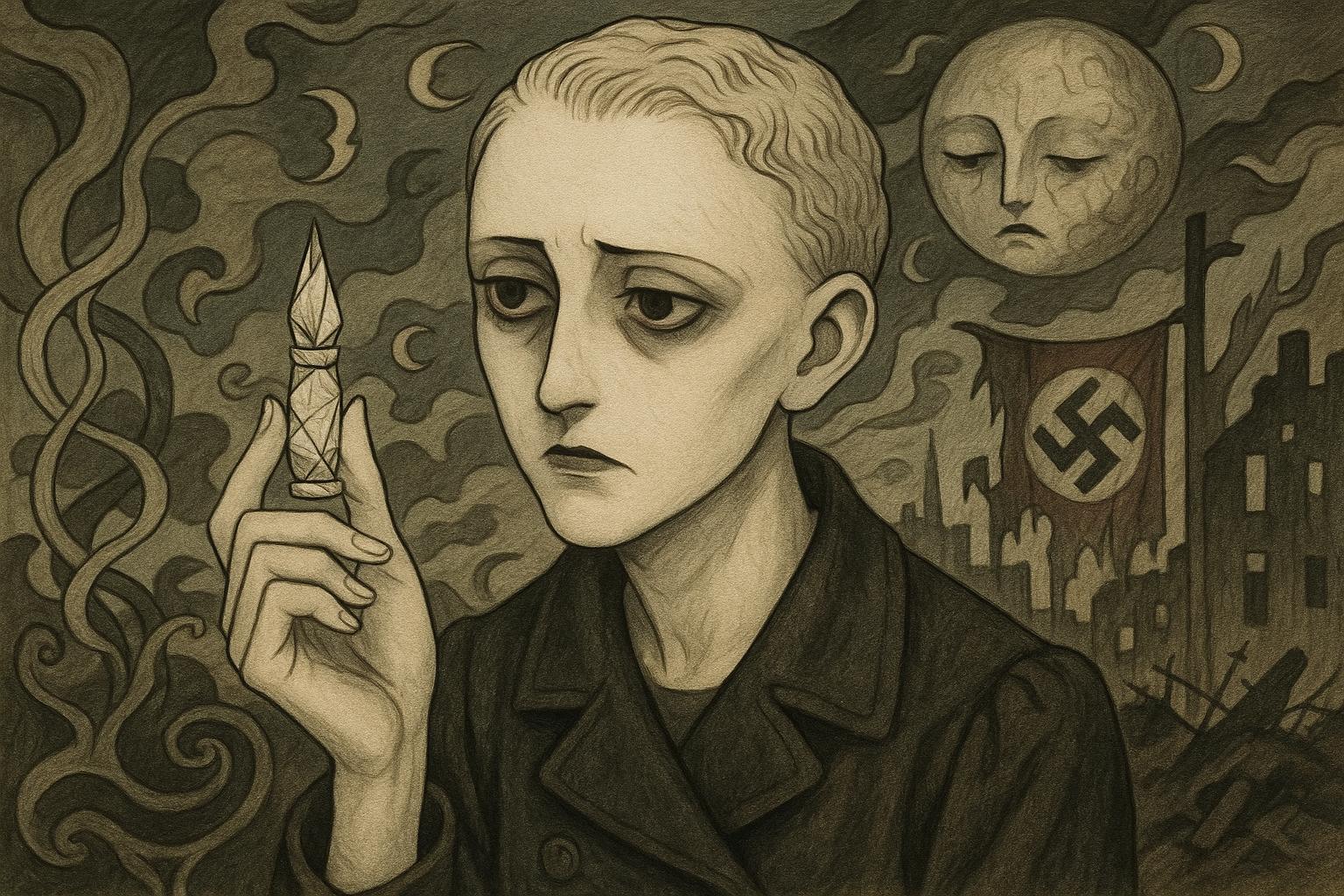Jewish-born surrealist writer and photographer Claude Cahun epitomised defiance against societal norms, particularly during her courageous actions against Nazi occupation in the Channel Islands during the Second World War. A new two-part Channel 4 documentary, Britain Under the Nazis: The Forgotten Occupation, chronicles Cahun's extraordinary resistance efforts, showcasing her commitment to fight back against the occupying forces with creativity and audacity.
Cahun, who was born Lucy Renee Mathilde Schwob in Nantes in 1894, lived in Jersey at the time of the Nazi invasion in July 1940. Upon witnessing the arrival of German troops, she recalled feeling an unsettling prescience of war, stating, "I think for the last three years I felt the war coming without wanting to believe it." The sentiment echoed the broader despair experienced by many islanders, compounded by other tragic incidents such as France's rapid defeat and Britain's humiliation at Dunkirk. The mood was one of bleakness, as articulated by the Bailiff of Jersey, Alexander Coutanche, who described the pervasive sense of "deep depression" that settled over the islands.
In a remarkable act of creative resistance, Cahun and her partner, Marcel Moore, who was also her stepsister, crafted ‘paper bullets’—propaganda notes designed to demoralise German soldiers. These messages, which appeared to come from disgruntled German troops, aimed to incite mutiny within the occupying ranks. Historian Dr Louise Willmot, who featured prominently in the documentary, highlighted the intricacies of these notes, revealing their sophisticated arguments against the Nazi regime, which included calls for soldiers to lay down their arms. Cahun recognised the life-threatening risks of such actions, yet she felt a moral obligation as an artist to resist oppression.
Not only were these paper bullets a manifestation of her bold spirit, but they also reflected her commitment to personal authenticity in a time of repression. Cahun and Moore's relationship was layered with complexity; they maintained a clandestine romance while presenting themselves as mere step-siblings in a society that severely punished those who defied conventional norms. Their efforts resonated with the surrealist movement, which often embraced political activism against fascism. Cahun's gender identity and artistic expressions further complicated her public persona, as she famously stated, “I don’t think of myself as masculine or feminine,” highlighting her fluid approach to identity.
Their subversive campaign, however, did not go unnoticed. In the summer of 1944, both Cahun and Moore were arrested by the Gestapo. Initially sentenced to death, they were spared execution following an appeal from Coutanche. Their bravery and tenacity not only illuminated the hidden stories of resistance on the islands but also revealed the shared struggles of many others. Journalist Frank Falla’s efforts with the Guernsey Underground News Service, for instance, highlighted the broader community's engagement in pushing back against the occupiers through various forms of clandestine opposition.
The documentary sheds light not only on Cahun and Moore's personal narrative but also on the grim realities faced by Channel Islanders under Nazi rule. Thousands were subjected to forced labour, while some, like nurse Therese Steiner, were deported to death camps. Conditions were horrific, notably in Alderney, where concentration camps led to numerous fatalities. Amid this brutality, Cahun's resolve stood in stark contrast, reinforcing the idea that individual acts of courage can inspire collective resistance.
After the liberation of Jersey on May 9, 1945, Cahun and Moore resumed their lives together, though the psychological scars remained. Cahun passed away in 1954, and Moore took her own life in 1972, leaving behind an unsettling yet profound legacy. Today, Jersey Heritage curates a vast collection of Cahun's work, preserving her unique contributions to art and resistance.
Britain Under the Nazis: The Forgotten Occupation not only tells Cahun's story but also invites reflection on the nature of courage and defiance in times of oppression. It is a poignant reminder that through art and resilience, voices can echo through history, defying the silence imposed by tyranny.
Reference Map:
- Paragraph 1 – [1], [2]
- Paragraph 2 – [1], [2], [5]
- Paragraph 3 – [3], [6]
- Paragraph 4 – [4], [7]
- Paragraph 5 – [1], [4], [5]
- Paragraph 6 – [1], [3]
- Paragraph 7 – [1], [6]
- Paragraph 8 – [1], [2]
Source: Noah Wire Services
